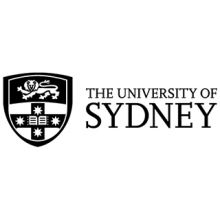Universities must come to grips with the geopolitical undercurrents driving Canberra’s international education crackdown, rather than simply dismissing it as an “isolated populist thing”, according to a foreign policy expert.
Philipp Ivanov said Australian universities had failed to appreciate the global trends underpinning the government’s proposal to cap international enrolments, and this had blunted their ability to mount an effective defence.
Caps are “part of the government response to a more fragmented and competitive world”, he said. “Unis will have to find a place and their voice in it. So far, I just haven’t seen Australian universities on the front foot in this process.”
Before the coronavirus pandemic, geopolitical tensions were considered the primary risk to Australia’s lucrative international education trade. However, domestic politics have proven the real threat, with perceptions of foreign students’ impact on living costs – particularly housing affordability – fuelling recent policies to slow down visa processing, increase application fees and limit overseas enrolments.
But Mr Ivanov said the domestic drivers should be seen in the context of three “big” international trends: geopolitical tensions, particularly the power struggle between China and the US; global fragmentation and competition, evident in the tussle over semiconductors; and increasing protectionism under the guise of “economic resilience”, demonstrated in Canberra’s Future Made in Australia agenda.
He said politics and populism had played a role in Canberra’s decision to impose caps. “But it does need to be seen in the context of the government policy, and the policy is essentially about building more secure, more sovereign Australian capabilities.
“The government…wants universities to be a part of its strategic policy agenda. It wants the vice-chancellors to be more focused on urgent national priorities. And it sees universities as…overly commercialised, overindulgent [and] lacking political constituency. Therefore, they’re an easy target.”
He said geopolitics had also underpinned the government’s desire for a “powerful new regulator” in the form of the Australian Tertiary Education Commission. “[This] is…a way for Canberra to claw back some of that regulation of Australian universities that they think they lost through the deregulation over the last 30 years.
“[The] clear push to align universities more with…national priorities is a step towards a more centralised system than we’ve been accustomed to in the 40 or so years since the Dawkins reforms.”
Mr Ivanov, who previously headed the University of Sydney’s Research Institute for Asia and the Pacific and co-authored the federal government’s 2012 Australia in the Asian Century White Paper, was due to speak at the Australian International Education Conference in Melbourne on 23 October.
He said the current geopolitical undertows had struck Australian universities in 2017 with the Turnbull administration’s “pushback” against Chinese political and economic interference. The government had become “very suspicious” of universities’ reliance on Chinese revenue and perceived vulnerability to Chinese influence.
While the relationship with China had now stabilised, Australia had sided very openly with the US in the global power struggle.
Yet universities had continued importing thousands of Chinese students in their “overly commercialised” brand of international education, Mr Ivanov said. “Now we have a situation where the government thinks, rightly or wrongly, that universities…are not contributing to the national priorities.”
Suborning universities to political interests has been considered the habit of Liberal governments and – ironically – Beijing. But Mr Ivanov said the “politics of national loyalty” were now entwined in the Labor Party’s relationship with the sector.
“We’re not as…authoritarian as China, but the picture is quite clear. This current Labor government…is much more interventionist than has been the Labor Party’s history.”
POSTSCRIPT:
Print headline: Australian HE must see that geopolitics underpins caps, says policy analyst
Register to continue
Why register?
- Registration is free and only takes a moment
- Once registered, you can read 3 articles a month
- Sign up for our newsletter
Subscribe
Or subscribe for unlimited access to:
- Unlimited access to news, views, insights & reviews
- Digital editions
- Digital access to THE’s university and college rankings analysis
Already registered or a current subscriber? Login










